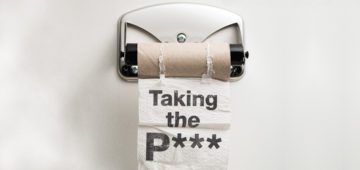- 13 November 2019
RSPH has become a Supporter of the All Party Parliamentary Group (APPG) on Fixed Odds Betting Terminals (FOBTs).
The Fixed Odds Betting Terminal APPG was established in 2016 as a forum for discussion and further investigation into the impact of FOBTs in UK communities. In January 2017, it launched the findings of its inquiry into the harm being caused on Britain’s high streets in the report Fixed Odds Betting Terminals – Assessing the Impact.
In March 2015, as part of its Health on the High Street campaign, RSPH called for a reduction in the maximum bet that can be placed in one game on FOBTs from £100 to £2. FOBTs have been described as the ‘crack cocaine’ of gambling, with their capacity to be played rapidly and repeatedly representing a serious addiction issue.
There are over 30,000 FOBTs on high streets across the UK, on which regular players spend an average of £1,209 annually. This is considerably higher than the average £427 spent annually on over the counter bets such as those on horse racing and other sports.
RSPH is concerned that gambling on FOBTs is fuelling financial problems, which in turn is damaging the health and wellbeing of users in a variety of ways, from poor mental health and an increased risk of suicide to the breakdown of personal relationships.
Duncan Stephenson, Director of External Affairs at RSPH, said: "RSPH has long campaigned for the health impacts of gambling to be recognized and mitigated. Fixed odds betting machines have been shown to have serious consequences for the public’s health, increasing the risk of debt, poor mental health, breakdown of personal relationships and suicide.
"We support the work and findings of the Fixed Odds Betting Terminals APPG, as it is vital that FOBTs are recognised as powerful determinants of the public’s health. We’re delighted to be coming on board."
Carolyn Harris MP, Chair of the APPG on Fixed Odds Betting, said: "I am absolutely delighted to welcome the Royal Society for Public Health as a new Supporter of the APPG. This shows the breadth and depth of the coalition of organisations who want to see action on FOBTs. Churches, politicians, local authorities and industry are all coming together to demand stake reduction on these harmful machines, which are poisoning our high streets.
We are absolutely thrilled to have an organisation with the pedigree of RSPH on board and look forward to the publication of the government’s proposals in the near future, which we hope will tackle the scourge of FOBTs."



